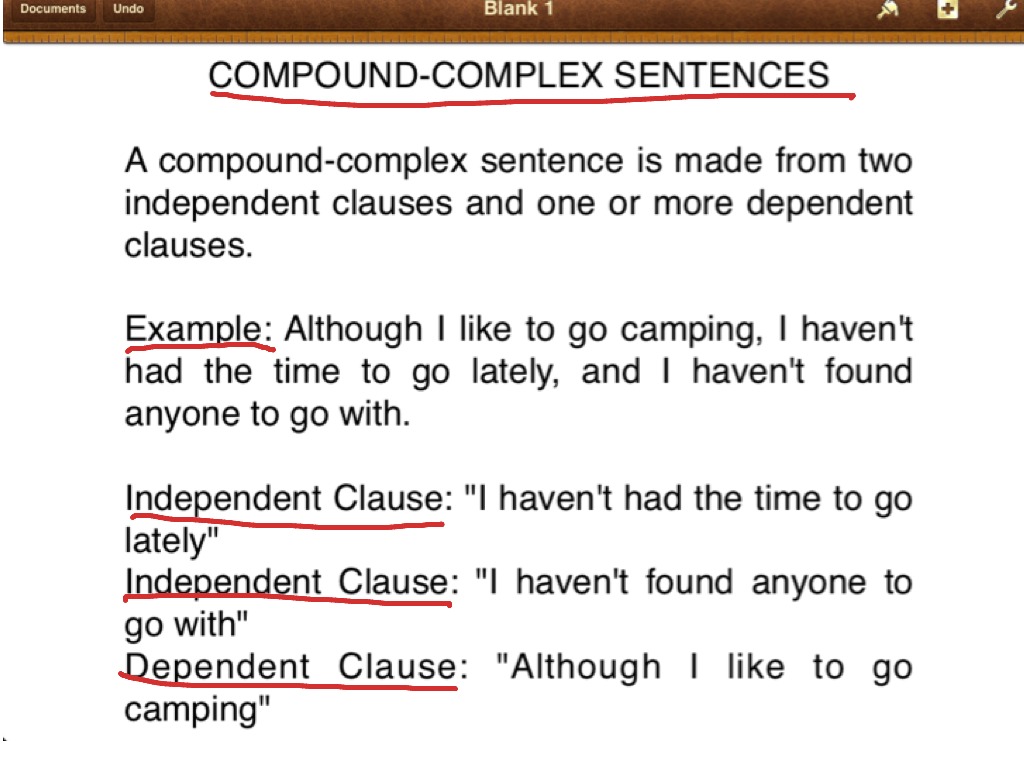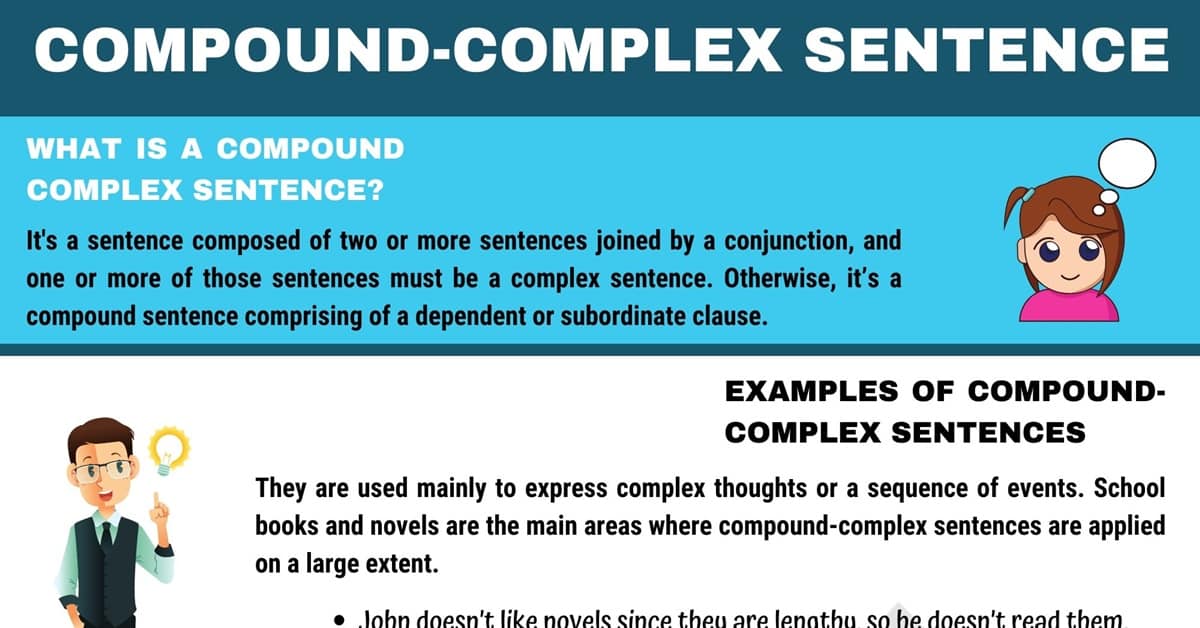Compound Complex Sentence Example - Yo, what's good fam! If you trying to up your game with your sentence structure, you gotta know about compound-complex sentences. They can take your writing to a whole new level, but can be tricky to master. Check out these examples and tips on how to use them like a boss.
1. Compound-Complex Sentences 101
Compound-Complex Sentences | English
Now, you might be wondering: what is a compound-complex sentence? Don't sweat it, cuz we got you. A compound-complex sentence is a mix of a compound sentence (two or more independent clauses joined by a conjunction) and a complex sentence (one independent clause and one or more dependent clauses joined by a subordinating conjunction or relative pronoun).

Basically, you're taking two concepts and smashing them together in one sentence. This can make your writing flow better, since you're not chopping up your thoughts into smaller bits. But be careful not to overdo it, or your sentence might end up too dense or hard to follow.
2. Spotting Compound-Complex Sentences
SuffolkESL [licensed for non-commercial use only] / Compound Complex
So, how do you know if you've got a compound-complex sentence on your hands? Look for the telltale signs. First, you should have at least two independent clauses with a conjunction in between. Second, you should have at least one dependent clause, introduced by a subordinating conjunction or relative pronoun. If you've got all those parts, you're golden.
Here's an example to help you spot one: "Although I love pizza, I can't eat it every day because it's not healthy." This sentence has two independent clauses ("I love pizza" and "I can't eat it every day") connected by the subordinating conjunction "although." It also has a dependent clause ("because it's not healthy") that adds more information to the second independent clause. Boom, compound-complex sentence in the house!
3. Compound vs Complex: What's the Difference?
Compound v/s Complex Sentence – MakeMyAssignments Blog
Woah there, hold up. Before we dive deeper into compound-complex sentences, let's take a quick detour to understand the difference between compound sentences and complex sentences. A compound sentence has two or more independent clauses, each expressing a complete thought and joined by a conjunction. For example: "I walked to the store, but I forgot my wallet." Each clause (or idea) can stand alone as its own sentence.

A complex sentence, on the other hand, has one independent clause and one or more dependent clauses that support or modify the main clause. For example: "Because it was raining, I stayed inside." The first clause ("because it was raining") is dependent, meaning it can't stand alone as its own sentence. The second clause ("I stayed inside") is independent, meaning it can.
4. Why Use Compound-Complex Sentences?
What is compound-complex Sentence? - English Grammar A To Z
You might be thinking, "Sure, compound-complex sentences sound cool and all, but do I really need to use them?" The short answer is no, you don't have to. But here's why you might want to: they can add variety to your writing style, create a sense of flow and rhythm, and allow you to pack more information into fewer sentences.

Plus, if you're writing something that requires more depth and complexity, like a research paper or a novel, compound-complex sentences can help you express your ideas in a clearer and more nuanced way. Just don't overdo it, or you'll end up with word salad instead of eloquent prose.
5. How to Use Compound-Complex Sentences Effectively
Compound-Complex Sentence Definition and Useful Examples • 7ESL
Alright, now that we've covered the basics, let's get into the nitty-gritty of how to use compound-complex sentences effectively. Here are some tips and examples to help you out:

- Make sure your independent clauses are related and complement each other. They should have a logical connection, not just be randomly thrown together.
- Use precise subordinating conjunctions to introduce your dependent clauses. Words like "although," "because," and "since" can create a clear cause-and-effect relationship between your ideas.
- Use variations in sentence structure and length to keep your reader engaged. Combining simple, compound, and complex sentences in different ways can make your writing more interesting and dynamic.
- Read your sentences out loud to make sure they flow smoothly and make sense. If you stumble over your words or lose track of the meaning, that's a sign that you need to revise.
- Practice, practice, practice. Like any skill, mastering the art of compound-complex sentences takes time and effort. Keep experimenting and refining your technique until you find your own unique voice.
So there you have it, folks. Compound-complex sentences might seem intimidating at first, but with the right tools and mindset, you can use them to take your writing to the next level. Keep these tips in mind, and don't be afraid to experiment and play around with different sentence structures. Your readers will thank you for it.
Read more articles about Compound Complex Sentence Example


